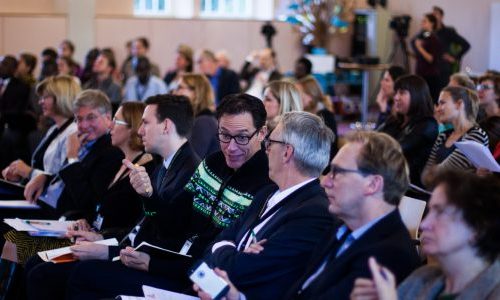INCLUDE research-policy dialogue: ‘How to make development policies in Africa more inclusive?'
 INCLUDE has invited the 17 research groups to present the (updated) interim outcomes of their research projects on Friday 30 September. Based on the findings, a joint and open dialogue on policy implications will then take place with policy stakeholders. Invited policy stakeholders are Dutch platform members and senior officials from the Netherlands Ministry of Foreign Affairs who work on inclusive development issues.
INCLUDE has invited the 17 research groups to present the (updated) interim outcomes of their research projects on Friday 30 September. Based on the findings, a joint and open dialogue on policy implications will then take place with policy stakeholders. Invited policy stakeholders are Dutch platform members and senior officials from the Netherlands Ministry of Foreign Affairs who work on inclusive development issues.
During INCLUDE’s platform meeting in Zambia last May, the interim findings and policy implications of the 17 INCLUDE research projects were presented and discussed with platform members. Though these were interesting - and sometimes challenging - discussions, all participants (both researchers and platform members) indicated that more time was needed for more detailed discussion and meaningful feedback on results and policy implications, as well as for informal exchange. In the twilight zone between research results and policy making, questions arise such as: how can the interim findings give answers to existing policy questions? And what additional knowledge is needed?
This meeting is on invitation only.
Contact: Karin Nijenhuis: c.t.nijenhuis@asc.leidenuniv.nl
INCLUDE’s Knowledge Agenda
INCLUDE’s overarching theme is: Making development in Africa more inclusive. Three sub-themes have been identified that focus on key aspects of inclusive growth and the elimination of extreme poverty in African partner countries: productive employment; strategic actors for inclusive development; and social protection.
* Productive Employment This theme aims to support research on productive employment in Sub-Saharan African partner countries and a research-supported dialogue on employment promoting policies.
* Strategic Actors for Inclusive Development This theme investigates the role that strategic actors can play in implementing policies that favour long-term inclusive development - actors with the (potential) power to overcome political obstacles to change.
* Social Protection This theme aims to enhance insight into the cost-effectiveness of social protection interventions in achieving inclusive growth, compared to other social policies with the same objective.
30 September: structure of the day
In three parallel sessions and five consecutive rounds, the interim findings and policy implications of each research project will be discussed for one hour. After a 20 minutes presentation of the research group on the interim outcomes, a platform member and policy maker will give feedback on policy implications, as will the project leaders of other research groups, on cross-linkages. This will be followed by a moderated discussion with the audience.
Guiding policy questions in the discussions in the parallel sessions
Productive Employment:
- What are the constraints for multinational organizations (MNOs) and dynamic entrepreneurs to realize more productive employment?
- How can donors and policy makers help achieve more productive employment?
Social Protection:
- What is more effective to promote maternal health: vouchers, CBHI or free maternity services?
- More generic: what is most effective in promoting inclusive development outcomes?
Strategic Actors for Inclusive Development:
- Who has the power to realize more inclusive development? (for sex workers, smallholder farmers (in global value chains), ethnic groups, informal sector workers)
- Do these specific groups have power themselves, are there groups that support them?
- Do MNOs or businesses want to promote inclusiveness and what are the strategies marginal groups use to keep the state at a distance?
The research groups will be represented by their project leader or a replacement. Research group members in the Netherlands are also most welcome.
The African Studies Centre Leiden is part of the Secretariat of INCLUDE, the Knowledge Platform on Inclusive Development Policies, together with the African Economic Research Consortium (AERC), the International Institute of Social Studies (ISS/EUR) and The Broker.

